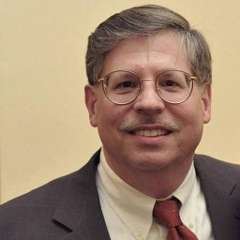This concert by the Virginia Symphony Orchestra and JoAnn Falletta proved to be a grand celebration of the French musical spirit. Two composers on the program were members of Les Six. Germaine Tailleferre's Ouverture made for an effective curtain-raiser. Its rhythmic verve and jaunty good spirits are guaranteed to put audiences in a good mood. I was particularly impressed with the chirping woodwind passages midway through, while brass and percussion accents really hit the spot.
A much better-known member of Les Six, Francis Poulenc's musical style has been described as "half monk half rascal". That also describes the Gloria quite well. Composed on a commission from the Koussevitzky Music Foundation, the Boston Symphony Orchestra and Charles Munch premiered the piece in 1961. It has been a staple of the choral repertoire ever since.
In today's performance, Falletta and the Virginia Symphony Orchestra and Chorus gave strong utterance to the musical contrasts in the score — Stravinskian dissonance alternating with lush lyricism. The playful Laudamus Te and Domine Fili Unigenite sections were particularly arresting, but even more impressive were the contemplative passages featuring the fine soprano soloist Anna Feucht. Her bright-yet-sensual voice was perfect for the part.
Poulenc once remarked that the inspiration behind the Gloria were Benedictine monks the composer saw playing soccer, along with Gozzoli frescoes showing angels sticking out their tongues. That may be, but the dreamlike spirit that also imbues this work is what ultimately turns the Gloria into the special gem that it is. The VSO musicians provided rich support to the soprano and the chorus, with the closing bars of the music particularly poignant.
Also featured on this Francophone program was a rarity by the Québécois composer André Mathieu (1929-1968). A composer whose story reads like a movie script of the "long-suffering creative genius", Mathieu's short, troubled life was as a piano virtuoso and composer whose Romantic style went against the fashions of the day. Today's soloist, the pianist Alain Lefèvre, has been an indefatigable champion of Mathieu's music for more than 30 years. He has also portrayed the composer in a biopic film.
The Piano Concerto no. 4 is a reconstruction of a piece that Mathieu may never have written down in full score. Instead, he left documentation in the form of radio transcriptions from his solo piano recitals in the late 1940s, wherein the three movements of the concerto were played by the pianist-composer in reduction without an orchestra. Having been entrusted with these recordings decades later, Lefèvre enlisted the help of Gilles Bellemare to prepare an orchestrated version of the concerto, which was premiered and recorded by Lefèvre in 2008.
Is it worthy music? Stylistically, the piece seems far removed from the 1940s. It is rhapsodic in nature, with dramatic, full-on Romanticism that's never far from the surface. Rachmaninov comes to mind, as well as bits of impressionism, but also the classic movie soundtracks. There's a cinematic sweep to the score that gives it a certain appeal. The 40-minute concerto consists of three large movements, each of which could probably stand on its own as a separate work (indeed, the slow movement has had a life apart from the concerto as Mathieu's Rapsodie romantique). Other than a general similarity in overall style, there is little thematic material binding the three movements together.
From the very outset of the concerto Lefèvre tore into the music with verve. His formidable pianistic pyrotechnics were on dramatic display, but with moments of tender contemplation interspersed — particularly in the second movement Andante, which features several gorgeous melodies.
The excitement level in the third movement Allegro con fuoco was über-high, as Lefèvre raced through rapid arpeggios and runs with the VSO players in hot pursuit. The pianist's belief in this music was never in doubt. In the end, his muscular interpretation turned in a committed performance that wowed the audience even as it made the best possible case for the music. An encore — one of Lefevre's own pieces titled Grand Carnaval — was dashed off with aplomb.
Rounding out the concert was a guaranteed crowd-pleaser, Ravel's Boléro. Even though one might not expect to hear dramatic interpretive differences in a piece that the composer himself described as "orchestral tissue without music", I found that this performance was particularly effective and better than the most recent concert performances of it that I've experienced. Falletta's choice of tempo was perfect (the piece coming in at around 13 minutes). Solo passages were done masterfully, with the only (minor) drawback being rather too showy licks by the trombone. Falletta built the inexorable crescendo just right — without giving too much away too early — and in the final measures an ending that was truly explosive. It was a nice exclamation mark placed at the end of a memorable concert.


